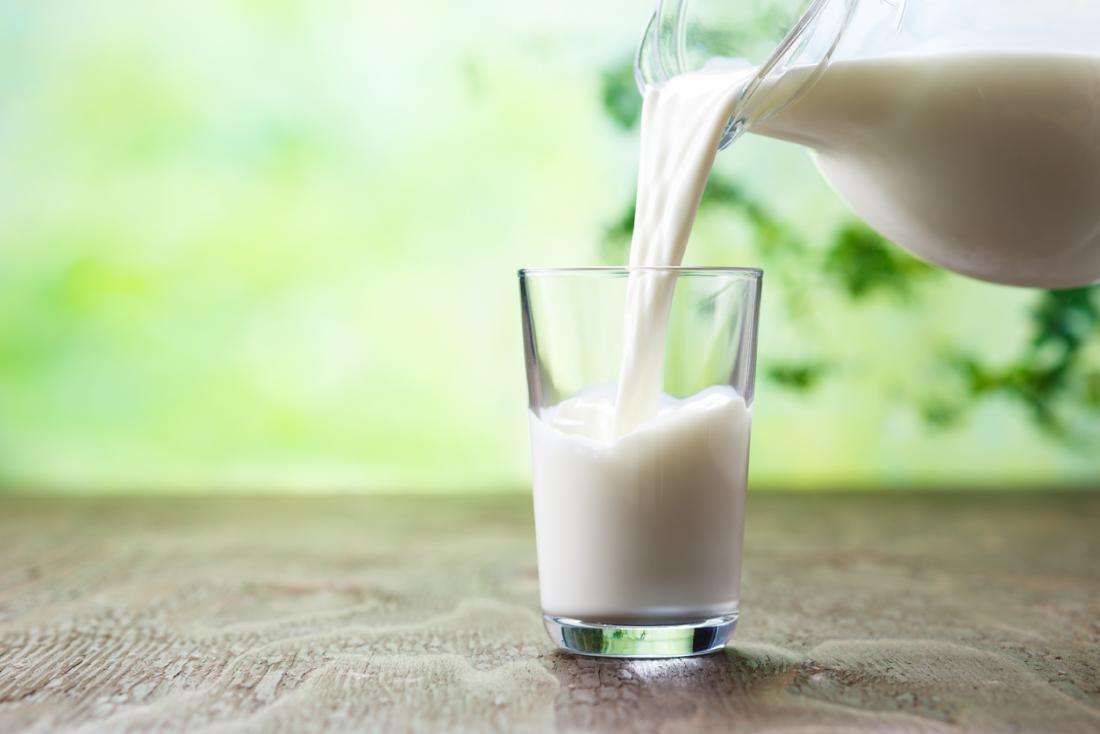Milk is a popular dietary staple in many western countries. Sources of milk and milk products include cows, sheep, camels, goats, and others. Alternative sources that do not involve animals include soy, coconut, almond, flax, rice, and hemp.
Recently, a new type of cow’s milk has appeared in the dairy aisles. This product, called A2 milk, has garnered attention from both consumers and scientists.
Supporters of A2 milk claim that it is easier to digest and absorb than other types of milk. This article provides an overview of A2 milk, its possible health benefits and risks, and current research surrounding the product.
Differences between A1 and A2 milk

A2 milk has been designed to be easier to digest and healthier than other cow’s milk on the market.
Milk is a good source of protein, containing 8 grams (g) per 8-ounce (oz) glass. The two major proteins in milk are casein and whey.
Casein accounts for about 80 percent of the protein in milk. There are also different types of casein, one of which is called beta-casein.
Beta-casein makes up about 30 percent of the protein in cow’s milk. A1 and A2 are two variants of beta-casein.
Historically, cows produced milk that contained only the A2 form of beta-casein. Today, most of the milk available from the local grocery store contains mostly A1 proteins.Health benefits and risks of consuming milk
History
Modern cow’s milk contains a mixture of A1 and A2 beta-caseins. A1 may cause adverse effects such as stomach discomfort.
A1 and A2 proteins affect the body differently.
When A1 protein is digested in the small intestine, it produces a peptide called beta-casomorphin-7 (BCM-7). The intestines absorb BCM-7, and it then passes into the blood. Doctors have linked BCM-7 to stomach discomfort and symptoms similar to those experienced by people with lactose intolerance.
The structure of A2 protein is more comparable to human breast milk, as well as milk from goats, sheep, and buffalo.
In 2000, a scientist in New Zealand founded the a2 Milk Company. This company provides milk from cows that only produce the A2 protein.
The a2 Milk Company test the DNA of their cows by using a hair sample, to ensure the animals only produce milk that contains A2 protein. The company test the milk after production, as well, to ensure it does not contain A1 protein.
Benefits
Symptoms of stomach discomfort, such as gas, bloating, and diarrhea that occur after consuming dairy products, are typically attributed to lactose intolerance. However, some researchers believe that it is BCM-7, not lactose, that affects digestion and produces symptoms similar to lactose intolerance, in some people.
A study on Chinese adults with self-reported milk intolerance compared the effects of drinking regular milk that contained A1 and A2 proteins with A2-only milk on intestinal function, stomach discomfort, and inflammation.
The participants consumed 8 oz of milk twice a day for 2 weeks. They reported worse stomach pain after they consumed the regular milk but no change in symptoms after they drank the A2 milk.
Participants also reported more frequent and looser-consistency stools while they drank the regular milk. These symptoms did not occur after they consumed the A2 milk.
Potentially harmful effects
Some of these effects can include:
Inflammation
In the same study mentioned above, researchers also looked at markers of inflammation in the blood. They found the participants had higher levels of inflammatory markers after they drank the regular milk.
Brain function
The research showed that milk could impact brain function. Study participants took longer to process information and made more errors on a test after drinking regular milk compared to A2 milk.
Type 1 diabetes

The potential risks associated with milk containing A1 proteins include an increased risk of developing type 1 diabetes.
Type 1 diabetes is an autoimmune disease in which the immune system attacks cells responsible for producing insulin. Usually diagnosed in children or teenagers, the incidence of type 1 diabetes is increasing around the world. Genetic and environmental factors, such as diet, play a role in the disease process.
Some studies have shown that children who drink cow’s milk protein at an earlier age than others have a higher risk of developing type 1 diabetes. However, other studies have not shown the same association.
The research also suggests that the amount of milk a child consumes could influence their risk of developing type 1 diabetes, with higher milk consumption observed in children who develop the condition.
At least one study showed a link between the consumption of A1 protein and incidence of type 1 diabetes, although this kind of study fails to prove that it is a direct cause.
Some animal studies have shown associations between cow’s milk consumption and a higher incidence of type 1 diabetes. One study in mice found that 47 percent of the mice that had A1 protein added to their diet developed diabetes, while none that had A2 protein added did so.
However, other research does not support the hypothesis that there is any association between milk consumption and a higher incidence of type 1 diabetes.
Heart disease
A study in rabbits looked at the effect of A1 and A2 proteins on cholesterol levels. Rabbits fed the A1 protein developed an increase in their cholesterol levels, but the study was small, and the results cannot be generalized to humans.
Some researchers hypothesized that consuming A1 protein was associated with a higher risk for heart disease, but multiple studies have not found higher rates of heart disease in people who drink more milk.
Cancer
High calcium intake from dairy products is associated with a possible increased risk of ovarian cancer in women, and high calcium intake from any source can raise the risk of prostate cancer in men.
We, at the Go Desi – GIR Cow farm follow superior standards in making a product that is pure and naturally produced. We strongly proclaim that we DO NOT use any hazardous chemicals to our cattle. We strive to deliver the goodness of milk in its best natural state. Also, our GIR Breed of cattle are highly disease resistant and are able to produce high quality milk.
We are one of the very few natural “GIR COW A2 PURE RAW MILK” producers in Hyderabad. For ordering this pure desi Gir cow A2 milk you can call/ whatsapp at: +91-9573900667 / +91-7207887740 /+91-9000008303. For more info contact us.
SOURCE: https://www.medicalnewstoday.com/articles/318577.php
